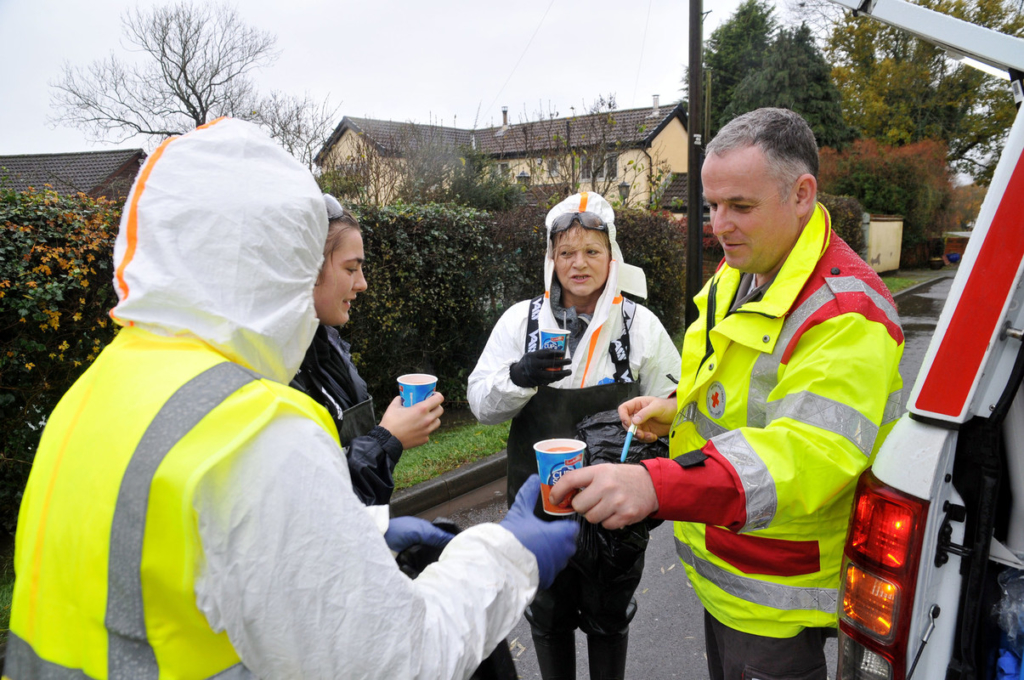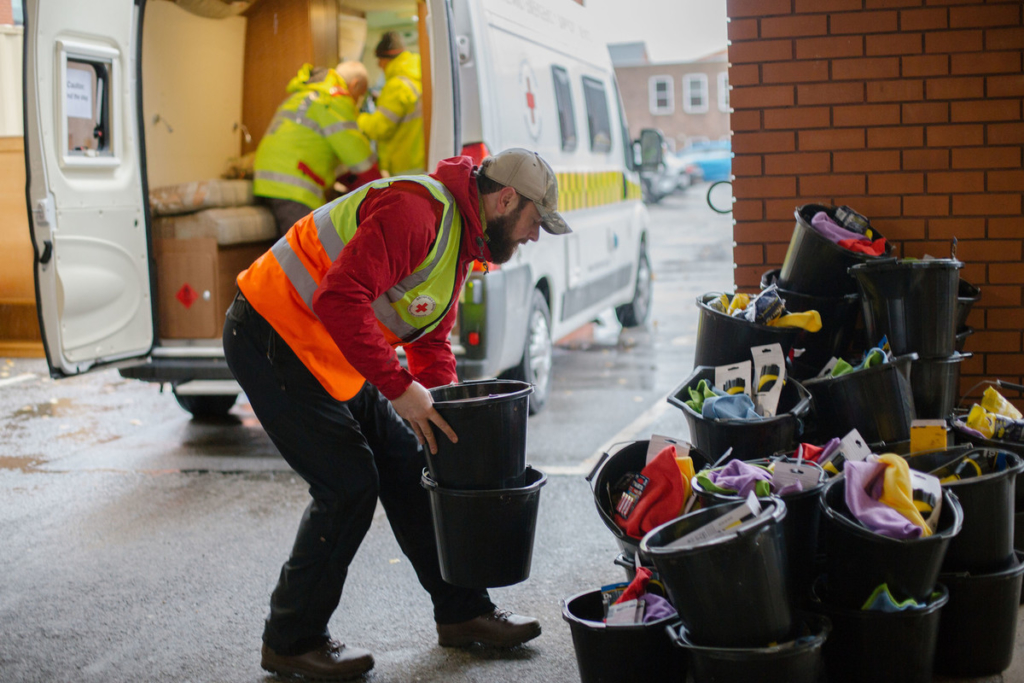British Red Cross calls for change in law to improve response when UK emergencies or disasters strike
The British Red Cross is calling for the law to be updated to give individuals and communities more say in how they are treated and the support they get in an emergency.
Currently emergency services, government bodies and councils, who together are responsible for planning for emergencies, aren’t legally bound to involve voluntary and community groups.
As a result, local knowledge about needs, vulnerabilities and sensitivities may not always be known or taken into consideration.
In its latest report, People Power in Emergencies, the charity looks at how far local resilience forums, which lead local council emergency planning, factor in the knowledge, skills and capacities of the voluntary and community sector.

It reveals that collaboration is variable, meaning responses to emergencies tend to focus chiefly on “command and control” mechanisms, which of course are important.
At the same time, this can mean missed opportunities to mobilise people power encouraging communities to build their resilience and support their recovery from within.
The report highlights the very different needs of individuals and how those needs can best be met.
One of the report’s key recommendations is for an urgent review of the 2004 Civil Contingencies Act.
The British Red Cross is calling on whoever wins the election to update the act to enshrine in law the role of the voluntary and community sector in emergencies.
Other recommendations in the report include:
· A “people at the heart of planning” checklist for local resilience forums, produced by the British Red Cross, and championed by the recently formed voluntary and community sector Emergencies Partnership
· A further amendment to the Civil Contingencies Act, Regulations and Guidance to require local resilience forums, in partnership with the voluntary and community sector, to plan what the report calls a more ‘person-centred’ approach to preparing for and dealing with disasters and emergencies.

Previous research by the British Red Cross has shown how involving grassroots organisations in responding to emergencies ensures people and communities feel listened to and more empowered and in the face of disaster.
As every individual will react differently, it is unrealistic to ask councils and emergency services to adopt a ‘one size fits all’ approach.
The British Red Cross is calling on local authorities and the voluntary and community sector to work with it on the report’s recommendations, and to see the law amended urgently.
British Red Cross CEO Mike Adamson said: ‘Our own response to the recent floods across Yorkshire and the Midlands has shown the value we bring, whether supporting fire and rescue to distribute sandbags, or welcoming people who’ve been flooded out of their home into rest centres.
“This is about showing how we complement the work of our partners.
“It’s also about giving a voice to those affected by emergencies and highlighting local challenges, sensitivities and opportunities to help people survive and recover better.
“It’s people and communities who know best what their needs are and how they want them addressed.
“They are the experts in who may be seriously ill, have a disability or mobility issue, or face difficulties because of language barriers, poverty, immigration status or anything else.
“By listening harder and tapping into that resource, people will have the best possible chance of survival and recovery.
“By updating the law so that statutory agencies work more with communities and the voluntary sector, people’s immediate needs will be met more easily, in the most appropriate way.”
Dr Andy Johnston, Chief Operating Officer of the Local Government Information Unit (LGIU), and Convenor of the Local Government Flood Forum, has welcomed the report: “It is very timely, given the recent emergency response to flooding in the North of England and the Midlands.
“Emergencies in the UK are evolving, with climate change and threats of terrorism, and are very complex, affecting both communities and councils.
“I am therefore pleased to see the recommendation for reviewing the legislation to better guide the local agencies in their planning for emergencies.
“In my roles as part of the LGIU and Convenor of the Local Government Flood Forum, I very much look forward to working more closely with both councils and the voluntary and community sector to take forward these insights and recommendations to ensure community insight is key to local government emergency planning.”
Quality content
- Casinos Not On Gamstop
- Casinos Not On Gamstop
- Casino Sites Not On Gamstop
- Non Gamstop Casino
- UK Online Casinos Not On Gamstop
- Casino Sites Not On Gamstop UK
- Casino Sites Not On Gamstop
- Games Not On Gamstop
- Sites Not On Gamstop
- UK Online Casinos Not On Gamstop
- Casino Not On Gamstop
- Slots Not On Gamstop
- Casino Not On Gamstop
- Gambling Not On Gamstop
- Casinos Not On Gamstop
- Non Gamstop Casino
- UK Online Casinos Not On Gamstop
- Casino Sites Not On Gamstop
- Best Betting Sites
- Best UK Online Casinos
- New Horse Racing Betting Sites

Leave a Reply
Want to join the discussion?Feel free to contribute!